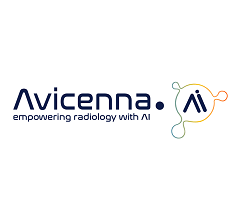 Avicenna.AI announced today that it has received 510(k) clearance from the US Food and Drug Administration (FDA) for its CINA-ASPECTS and CINA-iPE products.
Avicenna.AI announced today that it has received 510(k) clearance from the US Food and Drug Administration (FDA) for its CINA-ASPECTS and CINA-iPE products.
CINA-ASPECTS is an artificial intelligence (AI) tool for stroke severity assessment, automatically processing non-contrast computed tomography (NCCT) scans and calculating an Alberta stroke programme early CT (ASPECT) score—a topographic scale used to quantify the severity of a stroke from a CT scan of the brain. The tool computes a heatmap indicating the probability of hypodensity and sulcal effacement in the brain, displays a list of infarcted regions, and provides CT images corrected from tilt to easily compare the right and left hemisphere.
In addition to assisting clinicians in the evaluation of ASPECT scores from CT scans, Avicenna claims that CINA-ASPECTS also helps improve physicians’ reproducibility in ASPECT scoring, which often varies depending on the radiologist reading the scan. The tool was rigorously validated on 200 scans acquired on 27 scanner models from four leading manufacturers, the company also notes.
“The validations and multi-reader-multi-case studies we conducted highlighted that CINA-ASPECTS not only obtained outstanding standalone performance, but also demonstrated that its adjunctive use significantly improved clinicians’ accuracy in the assessment of ASPECTS regions, compared to the conventional use of NCCT images alone,” said Yasmina Chaibi, Avicenna’s clinical affairs manager.
According to a company press release, CINA-ASPECTS has become the first FDA-cleared tool from Avicenna in the category of computer-aided diagnosis (CADx), which means it goes beyond identifying abnormalities in scans to provide an assessment of the severity of a condition.
“We are delighted to launch CINA-ASPECTS to the US market, marking a significant milestone as our first CADx product receives FDA clearance,” said Stéphane Berger, regulatory and quality manager at Avicenna. “We take pride in being at the forefront of CADx solutions, being the first AI company supported by thorough clinical validation and a rich repository of real-world clinical data, which ensures compatibility across all manufacturers and platforms.”
Addressing the “serious issue” of delayed and missed findings in diagnostic imaging, the second Avicenna product to have recently gained 510(k) clearance—CINA-iPE—is an AI-powered tool that detects incidental pulmonary embolism (PE) during routine CT scans for separate health conditions.
According to Avicenna, the tool was validated on 381 CT scans—performed for clinical indications other than PE evaluation and acquired on 39 different scanner models from five leading manufacturers—and achieved “excellent sensitivity and specificity”.
“After a long journey of dedication and perseverance, we are thrilled to announce the FDA clearance of not one, but two, of our groundbreaking products,” said Cyril Di Grandi, Avicenna’s co-founder and chief executive officer. “The clearance of CINA-iPE and CINA-ASPECTS marks a significant milestone in our mission to strive for excellence in advancing patient care. These achievements stand as a testament to the unwavering commitment of our team.”









